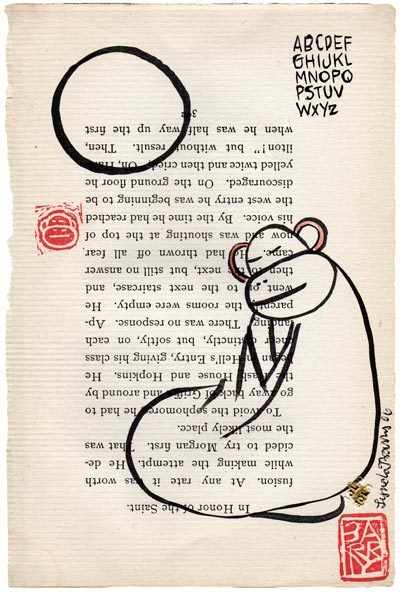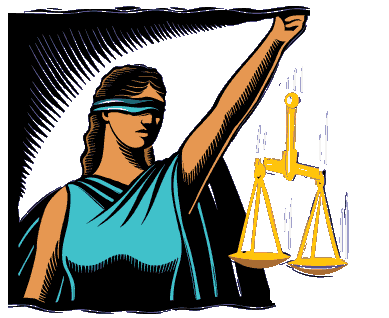
It has taken me a really long time to write this essay. I've had a few drafts, and at times, I've been too scared to even try to write. But after reading essays about Ira Glass and Lynda Barry, and reading her books and thinking about her and why I like her, I figured out why. I like her because it seems like she's doing okay. To me, she is like John Cage. Barry and Cage are two of the few artists I can name whose work I admire and is/was doing okay, or seems rather happy. I've always said John Cage seems so content because he convinced himself the entire world was playing his music. (The story goes, basically, that he hated radios, so he decided to start using them in his work, so after that every time he heard someone playing the radio, he figured they were just listening to a song of his). Pretty amazing way to cope with something that drives you absolutely crazy, or makes you depressed, or anxious, or angry, or feel like you're unable to live.
Living can be really hard sometimes, and that's a thing that Lynda Barry has talked about before. I heard her speak at the 2010 Comic Book Fest here in Brooklyn and she told this story about how when she was a kid she'd cut out pictures of food from "women's" magazines, then cut slits into those, and then also cut out pictures of her favorite comic book characters. This is where the genius comes in -- then she'd slowly put the characters through the plate of spaghetti or whatever and so they'd be popping out. She'd make them disappear, and then pop back out again, and just laugh. Not only can living be hard, but it can be absurd. From what I gather, Barry had a pretty rough childhood, which is what the comic about Ira Glass was also about -- repeating those cycles. She says her mother would berate her for doing this -- for doing something she enjoyed, even if it seemed stupid or pointless or absurd. And it is absurd. Why would this help someone? Why would it matter? Now, Lynda Barry says she still does this, but with cut-outs of political figures. And as she says, she just laughs and laughs and laughs.
Sometimes I find it hard to laugh. I feel distant and sometimes I can't even read the news. It hurts to much to even try. Or I find it hard to concentrate because I really can't focus on how bad it really is. I had a dream the world ended, and I was certain that it had, but when I checked the New York Times that morning, it actually did seem sort of close. I am upset about the cuts to funding, obviously. I am upset that they want to redefine rape and call rape victims "accusers", but not anyone else. I am upset about the conditions in Haiti and about hate crimes, and racism, and all the big stuff that makes the news in stories but is really just the condition of living in this world, and sometimes I have no idea what to do about it. Because sometimes there isn't a rally. Sometimes no one wants to go out into the street and scream with me, so screaming doesn't feel as good. Although sometimes it feels really good. Sometimes playing the drums works. Sometimes it doesn't. But there is one thing that never seems to fail for me, and that's art. After hearing Lynda Barry talk I realized once again why art was in my life and what I had to do with it and it makes sense why I find it difficult to not have my politics in my work anymore. How else will I heal from them? Sometimes I write to get it out, but other times I paint. Painting seems to be the most helpful because I love to draw monsters. I see a lot of monsters in this world, but by painting them as harmless or with funny looking teeth, it doesn't seem so bad. I still think I need to find the thing that is like my plate of spaghetti. I still need to think about the absurdity of it sometimes. But that's the thing about Lynda Barry, she is all about not giving up. About not giving up drawing (she continually asks in all of her books why people doodle while on the phone but say they don't draw, or only draw with kids around.) People are scared of the things they have been told not to do (what if Barry had listened to her mom? What would she have to help her to heal?) We need to tell ourselves we're going to do these things anyway, and not listen to the voices inside or outside of our head because the world at large doesn't want us to heal. Most of the time it feels like it wants to keep us silent. I could go on a whole tirade, but I won't, because I don't want to, because this is about art, and healing, and that it's okay sometimes to just laugh. Because you have to.

